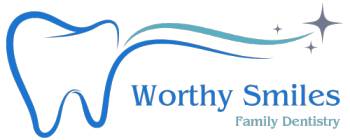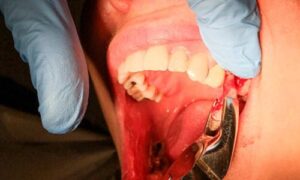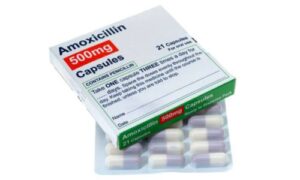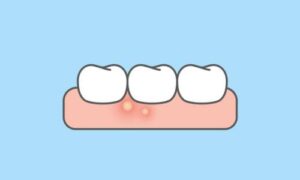A cavity is a little hole or gap on the hard surface of your teeth that is permanently damaged. Cavities, also known as tooth decay or caries, are brought on by several things, including oral bacteria, frequent eating, consuming sugary beverages, and inadequate tooth cleaning.
One of the most prevalent health issues worldwide is dental decay, which includes cavities. Particularly prevalent among kids, teens, and older adults. However, cavities may affect everyone who has teeth, including young children.
If left untreated, cavities get bigger and harm your teeth’s deeper layers. They may result in tooth loss, an infection, and excruciating dental pain. Regular dental appointments and proper brushing and flossing practices are your most excellent defense against cavities and tooth decay.
Symptoms
Depending on the size and location of the cavity, there are different indications and symptoms. You may not have any symptoms while a cavity is just starting. As the degradation spreads, it may result in the following signs and symptoms:
- Toothache, sudden pain, or pain that develops for no apparent reason
- Sensitive teeth
- While eating or drinking anything sweet, spicy, or cold, there may be mild to severe discomfort.
- Do your teeth have any noticeable divots or pits?
- A brown, black, or white stain on any tooth surface.
- When you bite down, it hurts.
When to go to the dentist
A cavity might be developing without your knowledge. Even when your mouth feels good, it’s still necessary to undergo regular dental exams and cleanings. However, if you have mouth or tooth discomfort, schedule an appointment with your dentist immediately.
Causes
Tooth decay, a gradual process, is what leads to cavities. Here is how dental degeneration progresses:
Plaque develops. Your teeth are covered in a transparent, corrosive layer called dental plaque. It results from consuming a lot of carbohydrates and carbs and neglecting to brush your teeth properly. When carbohydrates and sugars aren’t removed from your teeth, bacteria start feeding on them, and plaque soon forms. Tartar is created when plaque that remains on your teeth hardens under or above your gum line (calculus). Tartar acts as a barrier for germs and makes plaque removal more difficult.
Plaque assaults. The acids remove the minerals in your tooth’s complex and the outer enamel in plaque. Cavities start as microscopic gaps or holes in the enamel brought on by this degradation. The germs and acid may reach the dentin, the next layer of your teeth if portions of the enamel have been worn away. Compared to enamel, this layer is softer and less acid-resistant. Sensitivity is brought on by small tubes in the dentin that connects directly to the tooth’s nerve.
It keeps being destroyed. The bacteria and acid that cause tooth decay keep migrating through the inner tooth substance (pulp), which is home to nerves and blood vessels, as tooth decay progresses. The bacterium causes swelling and irritation of the pulp. Inside a tooth, there is nowhere for the swelling to grow. Thus the nerve is squeezed and hurts as a result. Even the bone outside the tooth root may experience discomfort.
Risk elements
Everyone who has teeth is susceptible to developing cavities. However, the following things may make it more likely:
Dental position.
Your rear teeth are more susceptible to decay (molars and premolars). These teeth feature several roots, pits, and crannies, as well as numerous grooves that may catch food debris. They are thus more challenging to maintain than your front teeth, which are smoother and easier to access.
Certain meals and beverages.
Those that stick to your teeth for an extended period, such as dry cereal, chips, milk, ice cream, honey, sugar, soda, dried fruit, hard candies, and mints, are more likely to rot your teeth than foods that are quickly removed by saliva.
You eat or drink often.
When you consistently munch or consume sugary beverages, you give oral bacteria more fuel to make acids that damage and wear down your teeth. Additionally, drinking soda or other acidic beverages regularly throughout the day contributes to a constant acid wash on your teeth.
Baby feeding before bed.
When newborns are given bottles containing milk, formula, juice, or other liquids containing sugar at night, these drinks stay on their teeth for hours while they sleep, feeding bacteria that cause tooth rot. Baby bottle tooth rot is a common name for this injury. Similar harm may result when children roam the house sipping from a sippy cup loaded with these drinks.
Insufficient brushing.
Plaque builds fast on the teeth after eating and drinking, and the early stages of decay might start if you don’t brush them right after.
We are receiving insufficient fluoride.
Fluoride, a natural mineral, aids in preventing cavities and may even repair minor tooth damage. Fluoride is added to many public water systems due to its advantages for teeth. In addition, it is often found in toothpaste and mouthwash. But fluoride is often absent from bottled water.
Older or younger.
Cavities are frequent in young toddlers and teens in the United States. Also, more at risk are older folks. When gums and teeth deteriorate over time, teeth become more susceptible to root decay. Additionally, older people may take more drugs that inhibit saliva production, raising the risk of tooth decay.
Mouth arid saliva helps prevent dental decay by washing away food and plaque from your teeth, which is why a lack of it brings on a dry mouth. Salivary substances also work to neutralize the acid that bacteria create. Lowering saliva production, several prescription treatments, medical conditions, radiation to the head or neck, and chemotherapy therapies might raise your risk of cavities.
Worn-out dental implants or equipment.
Dental fillings may become brittle, degrade, or have jagged edges. Plaque might accumulate more readily as a result, which makes it more difficult to remove. Dental appliances that no longer fit properly might start to deteriorate.
Heartburn.
Stomach acid may reflux into your mouth due to heartburn or gastroesophageal reflux disease (GERD), eroding your teeth’s enamel and seriously harming your teeth. Exposing more of the dentin to bacterial assault increases the risk of tooth decay. Your dentist could advise you to visit a doctor to determine if your enamel loss is caused by stomach reflux.
Eating problems.
Significant teeth erosion and cavities may result from anorexia and bulimia. Purging causes stomach acid to wash over the teeth, eroding the enamel repeatedly. Saliva production might also be hampered by eating problems.
Complications with cavities
You may not take cavities and dental decay seriously since they are so frequent. It is also unimportant for kids to have holes in their infant’s teeth. However, cavities and dental decay may have catastrophic and long-lasting consequences, even in youngsters who don’t yet have permanent teeth.
Cavities may result in the following complications:
- Pain
- Tooth infection
- Pus or swelling around a tooth
- Teeth with damaged or breaks
- Chewing on issues
- Changes in teeth position after tooth loss
When tooth decay and cavities are severe, you could have:
- Pain that makes regular life difficult
- Weight loss or nutritional issues as a result of unpleasant or challenging chewing or eating
- Losing teeth may impact your confidence and self-esteem, and appearance.
- A tooth abscess, a pocket of pus brought on by a bacterial infection, may sometimes result in more severe or fatal conditions.
Prevention
Maintaining good oral and dental hygiene can prevent cavities and tooth decay. Here are some recommendations for avoiding holes:
Fluoride toothpaste should be used after eating or drinking.
Ideally, you should brush your teeth after each meal and at least twice a day if possible. Use floss or an interdental cleaner to clean in between your teeth.
Wash your mouth out.
Your dentist could suggest using a fluoride-containing mouthwash if they believe you have a high risk of cavities.
Go to the dentist often.
Your dentist can advise you on the optimal schedule. Regular dental examinations and expert tooth cleanings help you avoid issues or identify them early.
Think about dental sealants.
A protective plastic covering known as a sealant is put on the chewing surface of the back teeth. It blocks off nooks and crevices where food tends to gather, protecting tooth enamel from acid and plaque. According to the Centers for Disease Control and Prevention (CDC), all children of school age should have sealants. Sealants should be tested often and may last for many years before needing to be changed.
Water from the tap, please.
Fluoride has been added to most public water systems, which may significantly prevent tooth decay. You will only get the advantages of fluoride if you consume fluoride-free bottled water.
Keep your grazing and drinking to a minimum.
Every time you consume food or drink anything other than water, you aid the production of acids in your mouth by bacteria that may erode tooth enamel. Your teeth will be constantly harmed if you eat or drink often during the day.
Foods and drinks that are healthier for your teeth than others include. Eat items that are good for your teeth. Avoid eating things that stay in your teeth’ ridges and crevices for a long time, or brush them immediately. Fresh fruits and vegetables, unsweetened coffee, tea, and sugar-free gum help wash away meal particles while also increasing salivation.
Think about fluoride applications.
Your dentist may advise regular fluoride treatments if you need more fluoride from fluoridated drinking water and other sources. If your risk of tooth decay is high, they could also suggest special trays that fit over your teeth to administer prescription fluoride.
Inquire about antimicrobial remedies.
Your dentist may suggest specific antibacterial mouth rinses or other treatments to help reduce the number of dangerous bacteria in your mouth if you have a medical condition that makes you more susceptible to tooth decay.
Combination therapies.
The risk of cavities may be decreased by chewing xylitol-based gum, taking prescription fluoride, and using an antibacterial rinse.














